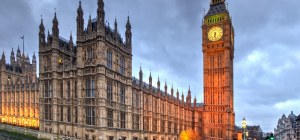35: Great Repeal Bill – We’re halfway there
Last week, the European Union (Withdrawal) Bill completed its remaining stages (Report Stage and Third reading) in the House of Commons, and moved to the House of Lords. It had its First reading in the Lords on 18 January, with Second reading (a general debate on all aspects of the Bill) scheduled for 30 and 31 January.
This (roughly) halfway point in the Bill’s journey is a good time to look, in overview, at how the Bill has changed so far. The Bill, as introduced in the Lords (ie a ‘clean’ version), is here.
It is worth recalling that the SSExEU, at Second reading, indicated that he was open to modifying the Bill. He said he would:
‘…welcome and encourage contributions from those who approach the task in good faith and in a spirit of collaboration. All of us, as legislators, have a shared interest in making the Bill a success and in the national interest.’
And he clearly feels that the Government has done so. At Third Reading, he summarised how the Bill had been shaped during its Commons stages:
‘We have tabled amendments to provide extra information about equalities impacts and the changes being made to retained EU law under the powers in the Bill.
We published a right-by-right analysis of the charter of fundamental rights, setting out how each substantive right found in the charter will be reflected in UK domestic law. It looks at how the right flows through retained EU law and how it is otherwise protected by existing domestic law or international law after exit.
We have also brought forward amendments to provide greater certainty on how imminent or impending legal cases will be dealt with from the day we leave the EU.
We committed to bring forward separate primary legislation in due course that would implement the withdrawal agreement, including an implementation period, and we set out the provisions for a vote on the final deal and the processes for implementing whatever is agreed. Linked to this, we respect the decision of this House to limit the power in clause 9, so that it cannot be used before primary legislation approving the terms of the withdrawal agreement has been enacted.
Perhaps most notably – and happily for me – we have listened to the concerns expressed about the scrutiny of secondary legislation… [T]he Government welcomed amendments made to the Bill proposed by the Procedure Committee to establish such a sifting Committee…
We have also intensified our positive discussions with the devolved Administrations and legislatures to find an agreed approach to clause 11, and we intend to bring forward amendments in the other place…’
Keir Starmer, Shadow SSExEU had a different view. He said:
‘This Bill has never been fit for purpose. It was not fit for purpose when it started its life last year, and… it is still not fit for purpose. We have repeatedly pointed to six serious defects in the Bill… The Government have not accepted any of the points that the Opposition have made. They have conceded some ground on their own side, but they have not taken seriously the propositions and arguments that we on this side have put forward. In my experience of dealing with Bills, that is unusual. They have simply robotically voted down all Opposition amendments.’
Are Labour right? Below, we set out Labour’s six ‘serious defects’, followed by a summary of what the Government has done in respect of each (you can form your own judgment as to adequacy…):
- the Bill fails to protect and reassert the principle of Parliamentary sovereignty by handing sweeping powers to Government Ministers allowing them to bypass Parliament on key decisions, without any meaningful or guaranteed Parliamentary scrutiny (the Government has introduced enhanced scrutiny provisions);
- the Bill fails to include a presumption of devolution which would allow effective transfer of devolved competencies coming back from the EU to the devolved administrations and makes unnecessary and unjustified alterations to the devolution settlements (the Government has intensified discussions and will bring amendments forward in the Lords);
- the Bill risks weakening human rights protections by failing to transpose the EU Charter of Fundamental Rights into UK law (the Government has published its ‘right-by-right analysis’);
- the Bill fails to provide certainty that rights and protections will be enforced as effectively in the future as they are at present;
- the Bill provides no mechanism for ensuring that the UK does not lag behind the EU in workplace protections and environmental standards in the future
(on both, the Government would say that EU law is being transposed ‘as is’ and decisions on future rights and protections are for future Parliaments, and it has brought forward amendments to provide greater certainty on how imminent or impending legal cases will be dealt with post-Brexit); and - the Bill prevents the UK implementing strong transitional arrangements on the same basic terms we currently enjoy, including remaining within a customs union and within the Single Market (the Government bringing forward separate primary legislation to implement the withdrawal agreement, including an implementation period, has set out the provisions for a vote on the final deal and the processes for implementing whatever is agreed, and will ‘respect the decision of this House to limit the power in clause 9’).
During the Report Stage debate, Ken Clarke also made some fairly strong remarks about the passage of the Bill through the Commons, which are worth setting out in full:
‘The whole Bill has gone through under a self-denying ordinance … that we are not talking about substance. The House has said, “We’re not going to bother very much with the future trade relationship and whether we are still in the single market or the customs union.” Well, they had better not take that view in the House of Lords … [as] some of the lawyers there will not put up with some of this nonsense… So far, this is a pathetic Parliament in the way in which it has handled this extraordinary Bill… We have debated for some time now – over many weeks – all three of the issues I raised [the Charter, retained rights and the status of transposed EU law], but I have yet to hear an argument of substance on any one of them… [T]his whole Committee and Report stage will have been one of the most curious and ritual parliamentary processes that I have seen for a very long time.’
Of course, the Government’s response to accusation of ‘a lack of substance’ on the future trade relationship and membership of the single market/customs union would be that these are not matters relevant to the Bill – it is about preparing the UK’s statute book for Brexit. On the other hand, we agree with the Father of the House about the lack of movement on some of the technical questions, such as the status of transposed EU law (discussed in more detail here). We suggest that the Lords (which contains a lot of lawyers) will get their teeth into the detail of these provisions rather more than MPs did.
But the Lords should not expect the Government simply to ‘roll over’. John Redwood commented:
‘Having sat through quite a few debates on the Floor of the House – in Committee, and on Second and Third Readings of Bills – while being a Member of Parliament, I do not think I have ever seen a Bill that has been so extensively debated, dissected, discussed, analysed and opposed. A huge amount of work has gone in to proposing a very large number of detailed and rather general amendments, discussing the philosophy, principles and technical matters in considerable detail… The Lords should take into account the fact that, on this occasion, the Commons has done its work very extensively and thoroughly, and has considered a very wide range of issues in amendments. I am sure that the Lords will take that into account when it comes to have its important deliberations on this legislation.’
Mr Redwood (unsurprisingly perhaps given his stance) is clearly drawing a line in the sand, whether on behalf of the Government or not is unclear – the unelected Chamber should respect the form of the Bill which the elected Chamber has passed.











